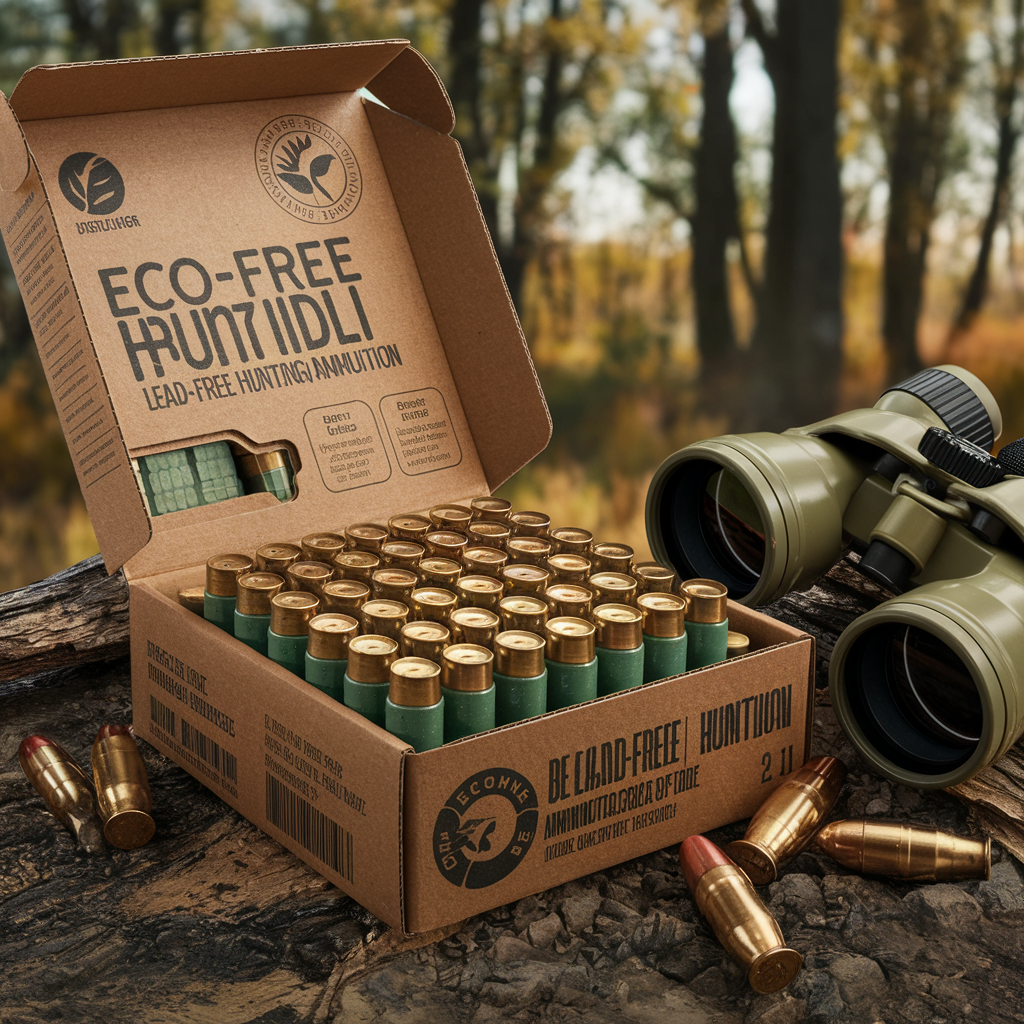The Debate Around Lead-Free Ammunition for Hunting

Lead-free ammunition for hunting has become a hot topic among firearm enthusiasts, conservationists, and hunters alike. While traditional lead-based ammunition remains popular, advances in ammunition technology and concerns over environmental impacts have sparked significant discussion. Let’s explore the key points driving this debate and what lead-free options mean for hunters.
Understanding Lead-Free Ammunition
Lead-free ammunition is made without lead components, relying on alternative materials such as copper, bismuth, or tungsten. These materials aim to deliver comparable performance to traditional lead rounds without contributing to environmental contamination. For hunters, the switch to lead-free offers a choice that balances effectiveness in the field with ecological considerations.
Over the years, scientific studies have raised concerns about lead contamination in wildlife and ecosystems. Scavenging animals often ingest lead fragments from spent ammunition, leading to potential poisoning and population impacts. A growing number of states and countries are restricting or banning lead-based ammunition to combat these risks.
Why Hunters Are Hesitant to Switch
Many hunters express skepticism about lead-free ammunition. Historic preferences for lead-based rounds stem from their affordability, accessibility, and reliability. Lead is dense and malleable, offering trusted ballistic performance that hunters value.
Key concerns for hunters regarding lead-free ammunition include:
- Cost: Lead-free alternatives tend to be more expensive than traditional rounds, making them less appealing for those on a budget.
- Ballistics: Hunters often question whether alternatives can match the expansion, penetration, and accuracy of lead-based bullets.
- Availability: Lead-free ammo is less widely available, which may deter hunters accustomed to convenience when purchasing rounds.
The Case for Lead-Free Hunting
Lead-free advocates emphasize the benefits of reducing environmental harm and protecting wildlife. Here’s why some hunters consider making the change:
- Environmental Impact: Lead fragments can leach into the soil and water, posing risks to aquatic life and scavengers such as eagles and condors.
- Food Safety: Ingesting game meat contaminated with lead particles can pose health risks to humans, especially children and pregnant women.
- Legal Compliance: As lead bans expand across certain regions, hunters may be required to transition to lead-free options in the future.
Hunters who prioritize ethical practices and sustainability may find lead-free ammunition to align with their personal values.
Performance Considerations
One of the most debated topics is how lead-free ammunition performs compared to traditional lead rounds. While early versions of lead-free bullets faced criticism for lacking consistency, recent advancements have significantly closed the gap. Brands such as Barnes and Federal now offer copper and alloy bullets that ensure reliable accuracy and terminal performance in the field.
Field tests demonstrate that certain lead-free rounds expand effectively on impact, delivering the energy needed for clean and ethical kills. However, hunters should familiarize themselves with the ballistics of alternative materials to ensure proper shot placement. Practicing with lead-free options beforehand is crucial for success in the field.
Practical Tips for Hunters
If you’re considering lead-free ammunition, here are some tips to ease the transition:
- Research Ammunition Brands: Explore reputable manufacturers offering lead-free options. Customer reviews and manufacturer data can provide valuable insights into performance.
- Test Dialed-In Loads: Spend time at the range testing different loads with your rifle or shotgun to ensure compatibility and accuracy.
- Check Local Regulations: Some hunting areas require the use of lead-free ammunition. Verify what is allowed before heading out.
- Stock Up: Lead-free rounds may be harder to find, so consider buying in advance to avoid last-minute inconveniences.
The Legal Landscape
The regulations surrounding lead ammunition vary widely. In the United States, certain states like California require lead-free ammunition in specific regions to mitigate risks to local wildlife. Internationally, countries like Sweden and Denmark have implemented stricter restrictions on lead ammunition use in hunting.
As legislation continues to evolve, hunters should stay informed about current laws that might affect their ammunition choices. This will ensure compliance and prevent potential fines or limitations on hunting activities.
The Future of Hunting Ammunition
As technology advances, the debate around lead-free ammunition for hunting will likely intensify. Manufacturers are investing heavily in developing affordable, high-performance alternatives to meet the demands of modern hunters. Meanwhile, public awareness of environmental issues is expected to drive broader adoption rates.
For now, the decision to switch remains personal and situational. Hunters should weigh their needs, ethics, and the requirements of their hunting environments before making the call. Whether sticking with traditional lead or opting for a lead-free alternative, responsible hunting and adherence to regulations should always take priority.
Final Thoughts
The debate around lead-free ammunition for hunting is far from settled. By remaining informed and open to change, hunters can make choices that reflect their values and ensure the continued enjoyment of their sport. Whether you choose to explore lead-free options or continue relying on traditional loads, make safety, ethics, and compliance your guiding principles.
For more tips, insights, and gear reviews, visit our hunting gear page. Let us help you stay prepared and confident on your next adventure.



